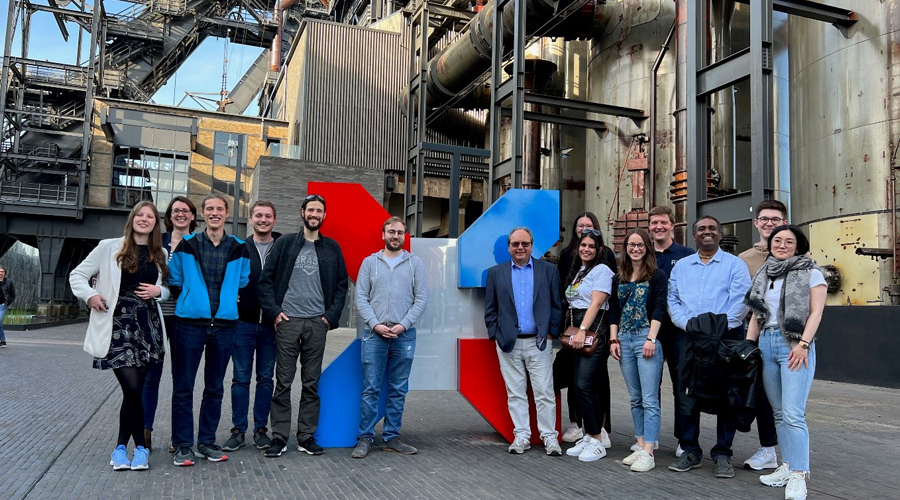The Master’s programme “Biomedical Data Science” visited the Luxembourg Center for Systems Biomedicine (LCSB) from 27 to 29 April – a text by Dr Adrian Schulz:
On Wednesday morning, 27.04.2022, a group of students from the Master’s programme “Biomedical Data Science” of the MHH gathered at the main train station in Hannover full of anticipation. Finally, the excursion to the Luxembourg Center for Systems Biomedicine (LCSB), sponsored by the Joachim Herz Foundation, was about to begin.
But first, the train journey of around 8 hours had to be made as entertaining as possible. The students of the online-based Master’s programme, who usually only meet in person during the short attendance phases at the MHH, took the opportunity to get to know each other better. The time flew by with card games and lively discussions. After arriving at the campus of the University of Luxembourg in Belval, which is located at the gates of the city of Luxembourg, the travel group spent a pleasant evening.
The following morning, they went from the hotel to the LCSB, which is within walking distance, where the programme prepared by the hosts began. The topics were divided into several sessions, between which there was time for exchange over coffee and snacks. The broad expertise represented at the LCSB was also reflected in the diversity of the programme items: Data science pipelines and their implementation, the programming language “Julia” for high performance computing and the data visualisation tool “Ada” were just some of the topics on the first day. A central motif of the events was the implementation of the R3 and FAIR principles. These are principles of sustainable and transparent handling of research data, which are intended to counter the reproducibility crisis in the life sciences. Another common feature of the presentations was the focus on transparent open source software. Emphasis was also placed on making the audience aware of typical pitfalls in the management of data science projects.
After an intensive and exciting day at the institute, a walk around the campus took place, during which the hosts had a lot to tell about the history of the place. The still young campus in Belval was built on the site of a former steelworks and the combination of old steelworks buildings with state-of-the-art architecture makes it a unique experience. After the walk, the international group stopped off at a restaurant. Not only the excellent food, but also the exchange between the students and the Luxembourg team contributed to a wonderful evening.
In the morning of the second and last day at the LCSB, there was the opportunity to gain their own experience with various applications. The software “KNIME” was used to create data cleaning pipelines that are traceable and reliably reproducible. In addition, the disease map of Parkinson’s disease developed at the site was presented and tried out by the students. This is an interactive representation of the available knowledge on molecular mechanisms of Parkinson’s disease. After the practical units, the excursion came to an end with a joint lunch in the best weather on the roof terrace. All participants concluded that the excursion was a complete success. And who knows – maybe it will not be the last excursion to the LCSB.

